Description

3-Day Comprehensive Training: Advanced Mindfulness Practitioner Certificate Course – Rochelle Calvert
You know how important it is for clients to have confidence in their clinician – to know the comfort of working with someone who’s invested extra time and effort to build the necessary skills to provide treatment at the highest level.
But standing out from the crowd can be tough. When clients have so many options, how do you differentiate yourself from your colleagues?
This intense training is your chance to distinguish yourself with the Advanced Mindfulness Practitioner Certificate!
Watch this recording and dramatically improve your mindfulness skills for enhanced treatment of anxiety, trauma, shame, depression, addiction, chronic pain and more!
Get answers to your questions on organizing and leading a mindfulness practice with clients, learn to effectively use numerous core and advanced mindfulness skills and exercises, and get detailed instruction on incorporating them into treatment with plans for pairing them with the specific mental health disorders you see in your office each day.
Get your Advanced Mindfulness Practitioner Certificate, and leave confident in your ability to improve outcomes for your clients through the safe and effective use of mindfulness!
- Articulate how empirical support for the effectiveness of mindfulness can be used to enhance clients’ engagement in therapy.
- Establish a consistent daily formal mindfulness practice with clients to help them improve well-being.
- Characterize how mindfulness can be used in therapy to help clients better manage their thoughts, emotions, and behaviors.
- Articulate how mindfulness training can enhance the cultivation of the therapeutic relationship.
- Treat insomnia with diaphragmatic breathing techniques that can improve sleep outcomes.
- Communicate how mindfulness can be used in treatment plans for anxiety to calm the arousal state.
- Specify how clinicians can enhance chronic pain treatment with mindfulness exercises to help clients accept and reduce pain.
- Teach clients how mindfulness can help them to better monitor their eating responses to challenging mental or emotional states.
- Explore how mindfulness can be taught in the clinical setting to help depressed clients manage negative self-talk and motivation for well-being.
- Analyze the differences between individual and group mindfulness practices.
- Communicate how clinicians can create effective therapeutic environments for the unique needs of clients.
- Formulate treatment plans for trauma that utilize clinical tools based in mindfulness and grounding to calm the biological stress response.
- Diversify available clinical techniques, and individualize treatment, by integrating mindfulness as an adjunctive therapy.
- Explore how mindfulness approaches can be used to stretch attention span and reduce impulsiveness in clients with ADHD.
- Assess for situations that may contraindicate the use of mindfulness with clients.
- Characterize how mindfulness can enhance addiction treatment and help clients identify triggers that could lead to relapse.
- Establish how mindful sense awareness skills can be taught to clients to help them break bad eating habits.
- Determine how mindfulness exercises can be used to help clients with anger issues choose to respond rather than react to anger inducing situations.
Strengthen Your Mindfulness Practice
- Routine, meaning, and connection to support consistent practice
- Mindfulness and nature practices
- The four foundations in mindfulness
- Transform barriers within your practice
- Practices:
- Breath
- Pleasure/pain
- Open/choice-less
- Body
- Thoughts and emotions
- Loving kindness
- Compassion
Mindfulness Techniques to Build Trust and Connection with Your Clients
- Affect regulation techniques for therapist and client
- Techniques to create empathetic connection
- Eliminate compassion fatigue with compassionate presence
- Exercises to build clients trust in themselves
Enhance Motivation with Creative Mindfulness Strategies
- Visuals, metaphors, and poetry to explain mindfulness
- Motivate clients with neuroplasticity
- Strategies to shift the ”Automatic Pilot”
- Exercises to teach reacting vs responding
Start and Sustain: How to Lead Formal and Informal Mindfulness Practices
- Embodiment of mindfulness
- Options for posture, range of experience and types of practice
- How to adapt practices to the unique needs of clients
- Leading inquiry strategies for deepened experience of mindfulness
- Mindful daily moments, brief practices and other informal practices
Mindfulness Techniques and Experiential Exercises for Enhanced Treatment of:
Anxiety & Stress
- Exercises to increase awareness of stress response
- Techniques to relax the arousal state
- Reduce anxious thoughts with:
- 3-minute breathing practice
- Mindful walking practice
Trauma
- Grounding and orienting techniques for felt safety
- Somatic exercises for emotional regulation
- Strategies to support overwhelm with breath and body practices
Shame and Guilt
- Body awareness practices to soften shame and guilt
- Care for shame with self-compassion
- Mindful antidotes to self-judgement
- Letting go exercises to shift attention and attitude
Anger
- Mindfully be with the body in anger
- Formal and informal practices to work with anger
- Respond vs. react exercises
Insomnia
- Diaphragmatic breathing to improve sleep
- Interventions for challenging thoughts linked to insomnia
- Mindful practice with technology
Depression
- Manage negative self-talk with awareness of thoughts
- Cope with limited energy through energy awareness practices
- Nature meditations that boost well-being
Pain
- Psychological well-being and chronic pain
- Breath awareness practices to decrease acute pain and manage chronic pain
- Loving kindness/compassion meditations for pain reduction
Eating Disorders
- Mindful eating fundamentals
- Sense awareness skills to shift bad eating habits
- Mindful skills for responding to cravings
- Awareness practices for satiety and hunger
Addiction
- Mindful awareness of triggers for relapse prevention
- Urge surfing: mindfulness interventions to cope with urges
- Taking in the good – noticing the good events in life
ADHD
- Stretch attention span with focus building practices
- Mindful movement for controlled attention
- STOP practices for reduced impulsiveness
Group and Individual Session Plans
- To improve client outcome
- Mindfulness-based group programs and emotional resonance
- Identify opportunities in one to one clinical sessions
- Determine which format is best for your client
- Situations that may contraindicate applying mindfulness
Assessment, Growth and Support
- Assess how practices are working for the client
- Grow the path of practice for clients
- Cultivate joy in mindfulness practice
Tag: 3-Day Comprehensive Training: Advanced Mindfulness Practitioner Certificate Course – Rochelle Calvert Review. 3-Day Comprehensive Training: Advanced Mindfulness Practitioner Certificate Course – Rochelle Calvert download. 3-Day Comprehensive Training: Advanced Mindfulness Practitioner Certificate Course – Rochelle Calvert discount.
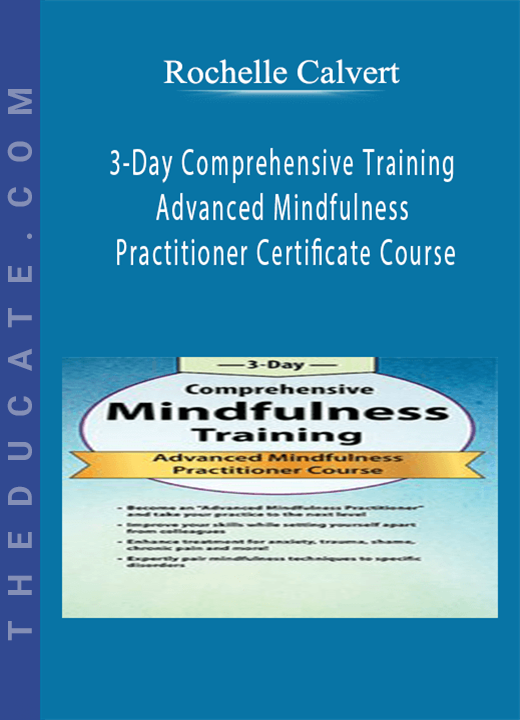


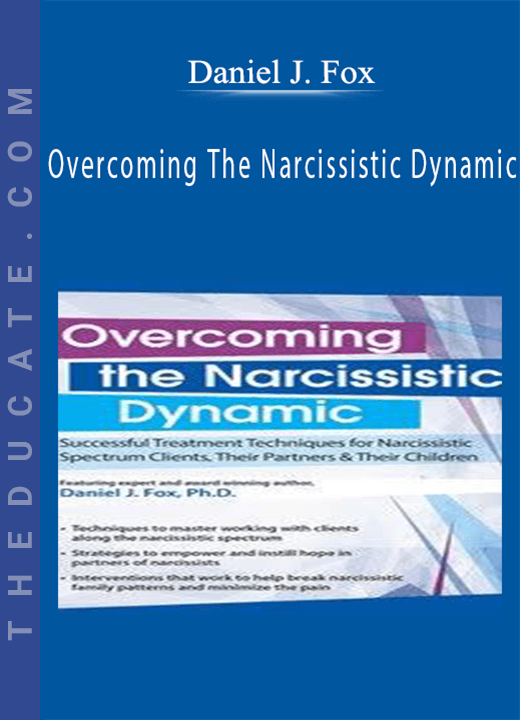
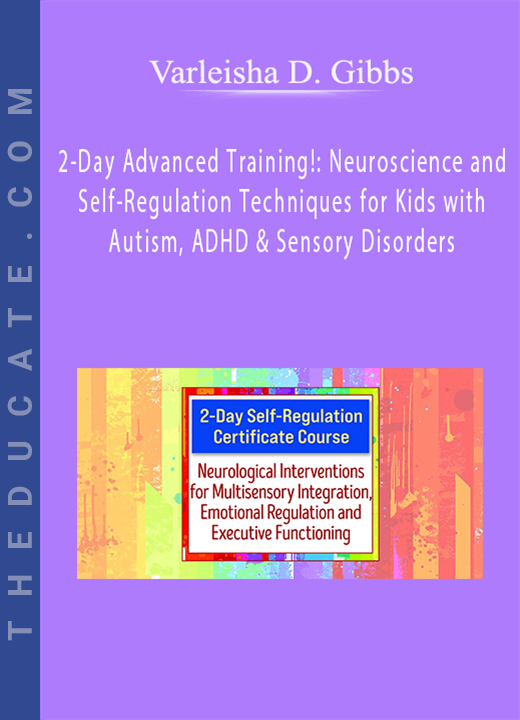
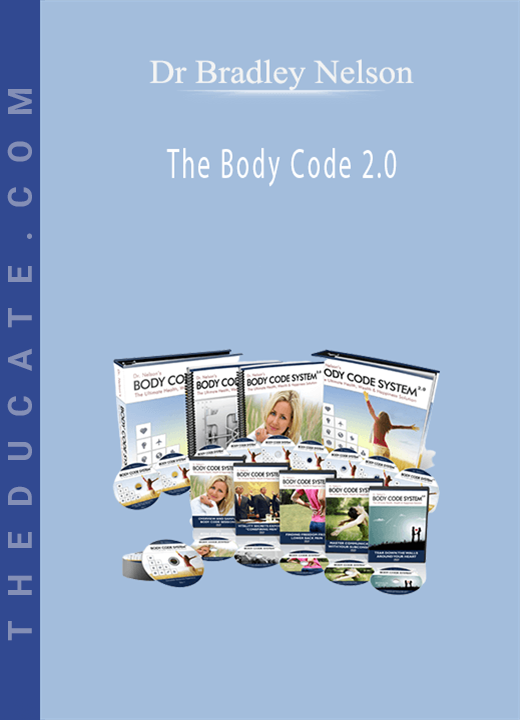
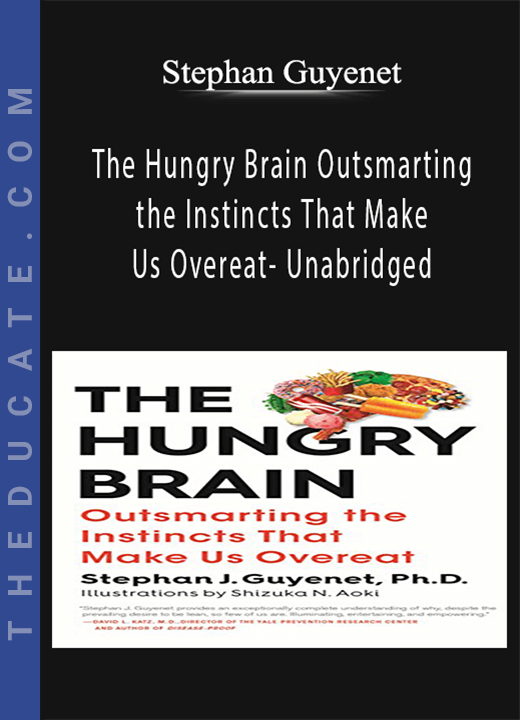
10 reviews for 3-Day Comprehensive Training: Advanced Mindfulness Practitioner Certificate Course – Rochelle Calvert
There are no reviews yet.